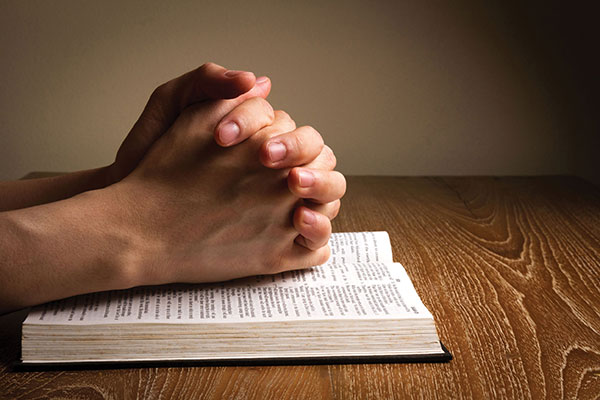Spiritual Care for Survivors of Cancer
by Rev. Susan P. Conrad, MDiv, ACPE, and Jamie Alexis Cohen, PsyD
What enlivens you? What connects you to a sense of awe or gratitude? What pursuits give you a sense of greater energy than you thought you had, or – alternately – a feeling of deep peace and connective warmth? These are spiritual questions – and they are questions that may arise as part of your journey with cancer.
Religion and spirituality, while often considered to be interconnected, are not necessarily the same. Religion, derived from its Latin origin religare, meaning “to reconnect,” has been defined by Mary Vachon in Seminars in Oncology Nursing as “an organized system of beliefs, practices, rituals, and symbols designed to facilitate closeness to the sacred or transcendent God, higher power, or ultimate truth or reality.” Much like a ligament that connects bone to joint in the body, religion can bind individuals through various rituals, sacraments, rites of passage, and communities of worship.
Spiritual resources and approaches help us creatively reframe, seek acceptance, and find meaning through the experience of living with and surviving cancer.
Spirituality, alternatively, derived from its Latin origin spiritus, meaning “breath,” has been defined by Vachon as “that which allows a person to experience transcendent meaning in life. This is often expressed as relationship with God, but it can be about nature, art, music, family, or community – whatever beliefs and values give a person a sense of meaning and purpose in life.” She also states that “It may emerge from religious belief or it may have no relationship at all to organized religion.”
A spiritual journey often starts as an interior one – a process in which we develop a deepening relationship with self, with others in our lives, and with a transcendent or ultimate reality. Research shows that embracing spirituality can assist in coping with and adjusting to cancer diagnosis and treatment.
Spiritual resources and approaches help us creatively reframe, seek acceptance, and find meaning through the experience of living with and surviving cancer. Strong feelings can be companions on the cancer journey – fear, grief, anger, uncertainty, and sadness can arise, and at times can feel overwhelming. Spiritual practices such as meditation, reflection, journaling, prayer, and ritual, among others, can help us make space for, and honor, these intense emotions in ways that align with our values.
Resources to Feed Your Spirit
• Headspace
headspace.com
• Simply Being by Meditation Oasis
meditationoasis.com/apps
• Life Values Inventory
lifevaluesinventory.org
This could mean engaging with symbols and spiritual resources that speak to you. As one example, drawing creatively on the Jewish tradition of prayer that expresses one’s experience of suffering, a cancer survivor might write (or paint or draw) their own “lament,” sharing what has been most challenging for them in the cancer journey.
A spiritual perspective enables us to ask, when powerful feelings arise: How can I treat myself gently, make space to feel what I am feeling, and know that this feeling connects me with all others who have felt this way?
There are three main ways in which cancer survivors can nourish spiritual wellness:
1. Foster meaning, direction, and purpose through investing energy and time in relationships and activities that reflect the personal values you hold most dear.
Taking intentional steps to prioritize what matters most to you, and finding ways to express your personal values, is spiritually nourishing. It also often requires courage. Are there people or activities in your life that connect you to a deep sense of meaning and purpose, and if not, how might you explore those possibilities further? Have you been struggling with a decision that you know you need to make? Seeking clarity with the assistance of supports can help. Moreover, intentionally taking some time to clarify your values can help you identify what matters most to you and how to move toward expressing these values more fully.
Taking intentional steps to prioritize what matters most to you, and finding ways to express your personal values, is spiritually nourishing.
2. Deepen connection to your inherent self-worth and your sense of belonging in community.
Many spiritual practices (and many religions) honor the inherent value of each person, as well as the community that celebrates each person. How do you honor your uniqueness and preciousness in the world, and who in your life reflects that back to you? A sense of identity, and connections with the communities that nourish us, may evolve and change throughout the cancer process. What does community mean to you now, and how does that express itself? If your sense of identity, or community, has changed over time, perhaps you can intentionally acknowledge this change – this could include grieving what may be lost or is ending, and intentionally welcoming new beginnings and possibilities.
3. Honor the need for reconciliation and forgiveness where this may exist in your life, with others and with yourself.
Taking an honest accounting of any relationships that feel unfinished or strained can be crucial to a sense of spiritual well-being. This includes becoming aware of relationships in which we may be feeling resentful or hurt, or simply where we may have neglected to say thank you. Ultimately, this avenue of spirituality is about expressing our love to others and receiving love from them. Forgiveness is not often easy, and sometimes it may not be possible. However, this path is about searching within ourselves to find where we are able to see the perspective of another, let go of past hurts, and ultimately expand our sense of compassion for others and for ourselves. In this journey, we practice becoming clear about our needs and boundaries, letting go of what may not be possible in relationships, and opening up to the intention to forgive others and ourselves. We also seek to support ourselves with relationships that can sustain us in doing this vital work.
You have the freedom to carve out your own uniquely fulfilling path in terms of how you connect to spirituality in the context of cancer. Engagement with spirituality need not feel like a chore or a burden, but rather an opening up to what is most deeply life-giving to you. While by no means exhaustive, the three avenues explored here may serve as stepping-stones to spiritual wellness when navigating the inevitably life-changing experience of cancer.
In closing, we offer you this intention adapted from Buddhist spiritual practice: May you be safe. May you be well. May you find moments of joy, even in the midst of challenge. May you be free from undue suffering, and may you find yourself held in love and care.

Dr. Jamie Cohen (left) serves as a clinical psychologist with the psycho-oncology service at the University of California – San Francisco Medical Center in San Francisco, CA.

The Rev. Susan P. Conrad (right) serves as manager of spiritual care services at the UCSF Medical Center. She is a board-certified chaplain with the Association of Professional Chaplains, a certified educator with the Association for Clinical Pastoral Education, and an ordained and fellowshipped minister with the Unitarian Universalist Association.
This article was published in Coping® with Cancer magazine, September/October 2018.


